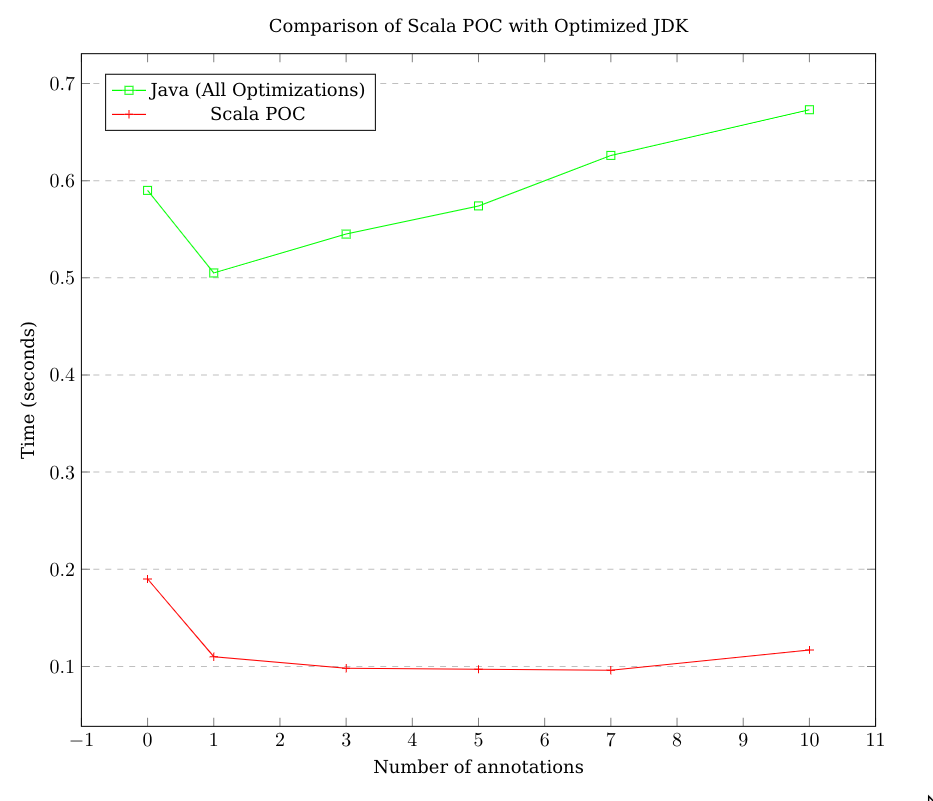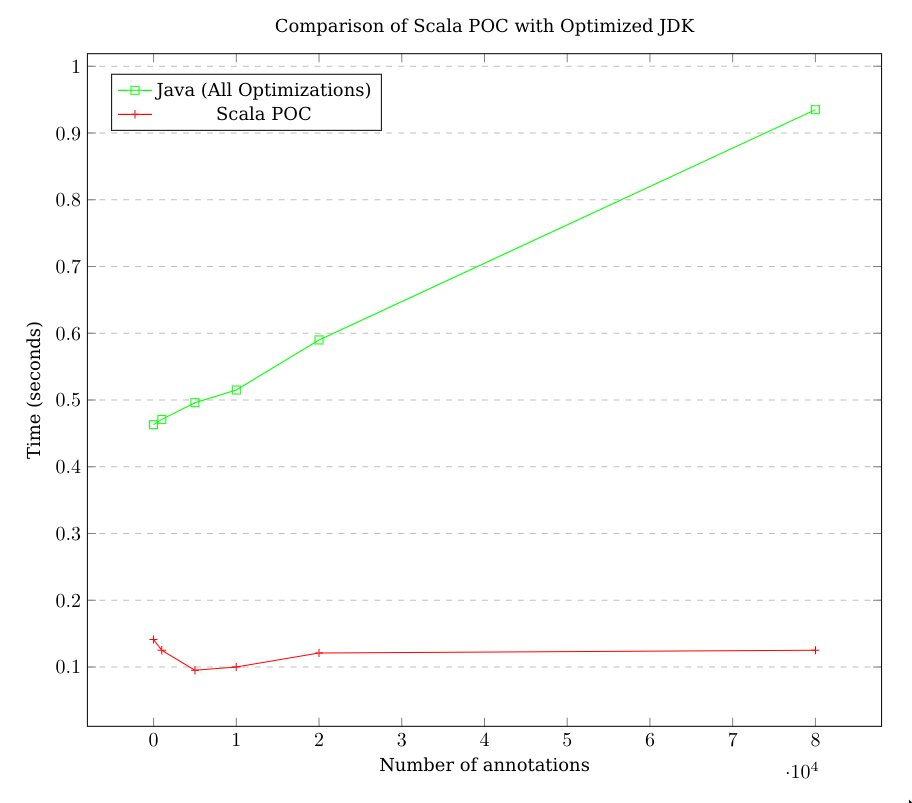This repository is a POC for a Scala sdk of the Alvarium project.
There are also some enhancements ideas :
- Applies all the optimisations as discussed in Alvarium's java sdk issue #136
- Replace Alvarium's
AnnotatorswithEnvironmentCheckers, and create the annotations in the engine to avoid code duplication Sdkinterface is calledAlvariumEngine- Annotate and publish data asynchronously
- It is easy to inject its own signer/hasher/serializer
- Safe way to pass properties to checkers when annotating data
PLEASE Open an issue if you want more documentation and more details about what was done, i'm doing this repo mostly for fun.
Run ./mill assembly then get the output jar located in out/assembly.dest/out.jar.
Use the builder to configure the Alvarium's engine
val engine = new AlvariumEngineBuilder {
override val signer: SigningType = SigningType.Ed25519(FileKey(Path.of("./res/private.key")), keepSignerInMemory = true)
override val stream: StreamType = StreamType.Mqtt(
Endpoint("mosquitto-server", "tcp", 1883),
clientId = UUID.randomUUID().toString,
qos = 0,
isClean = false,
crendentials = None
)("alvarium-topic")
override val hasher: HasherType = HasherType.MessageDigest("SHA-256")
addCheck(new TpmChecker())
addCheck(new TlsChecker(socket = /*TLS socket*/))
addCheck(new PredicateChecker[String](data => isValidJson(data)), alias = "data is a valid json")
addCheck(new PredicateChecker[Int](input => input == 3), alias = "input is equal to 3")
addCheck(new PkiChecker())
addCheck(new MyCustomCheckerType())
}.build()Then annotate the data based on the action performed :
val future = engine.annotate(AlvariumActionKind.Publish, data)(
Checker[PkiChecker] -> PkiCheckerProps(data),
Checker[PredicateChecker]("input is equal to 3") -> PredicateCheckerProps(4),
Checker[PredicateChecker]("data is a valid json") -> PredicateCheckerProps(new String(data))
)The annotation is then performed asynchronously. You can blockingly await for the annotation to be published by using Await.result() :
val annotations = Await.result(future, 5.seconds) //returns the bundle that has been sent to the provided stream.Here is the comparison of performances enhancement compared to Alvarium Java SDK Performances Report's Optimisations ideas

